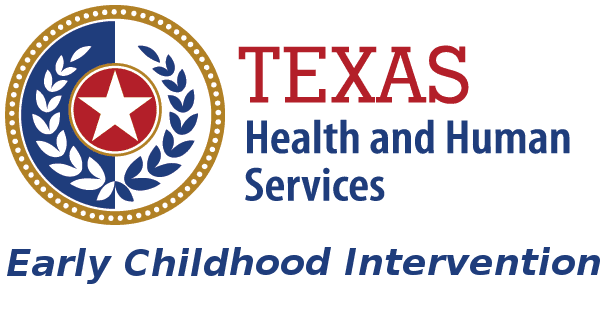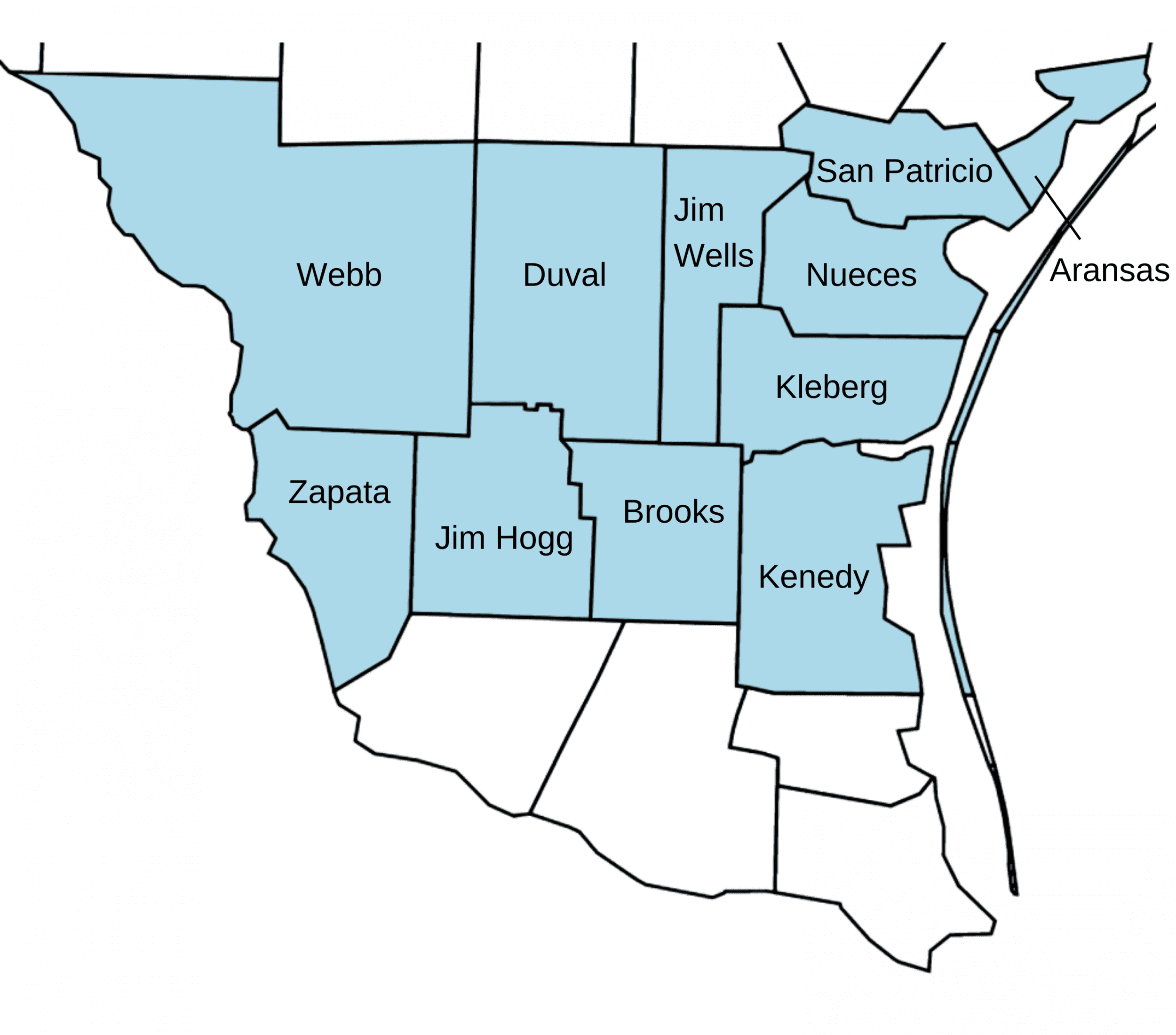
Project Niños

Project Niños
In 2022
Funded Enrollment
Children Served
Average Monthly Enrollment
Direct Service
Hours
The Early Childhood Intervention (ECI) Program is a program for families with children, birth to age three, with disabilities and developmental delays. The program is designed to support families as they help their children grow and learn. ECI’s family-centered model provides specialized support by an interdisciplinary team in the child’s natural environment (e.g., home, child care centers) with a focus on coaching and instructing parents and caregivers through a child’s daily routines. Therapists and/or other credentialed professionals work with the child and family so that parents can then carry out the recommended techniques that ensure learning and progression.
In 2022
Enrollment
Developmental Milestones
For each stage of development after birth, a child should have similar skills to what is listed in each box below. If you have a concern about your child's development, give us a call to determine if you are eligible for ECI services.
For each stage of development after birth, a child should have similar skills to what is listed in each box below. Click on each box for more details. If you have a concern about your child's development, give us a call to determine if you are eligible for ECI services.
3-6 Months
- Follow moving toys or faces with their eyes
- Startle at loud or new sounds
- Wiggle and kick legs and arms
- Lift head and shoulders while on stomach
- Smile back at parents or other family members
- Make sounds, like gurgling, cooing or sucking sounds
6-9 Months
- Explore toys with hands and mouth
- Roll over front-to-back and back-to-front
- Turn their heads to voices and respond to their names
- Know family members and seek their attention
- Enjoy playing “peek-a-boo”
9-12 Months
- Pick up crumbs or other small things with their thumb and finger
- Crawl on hands and knees
- Sit without help
- Repeat sounds like “baba,” “dada,” “mama”
- Cry when mother or father leaves
12-15 Months
- Pull themselves up to a standing position
- Drink from a cup with your help
- Wave bye-bye
- Say “mama” and “dada” and one other word
- Point to objects they want
15-18 Months
- Use at least three words besides "mama" and "dada"
- Point to picture or objects you name
- Like to look at pictures in a book
- Dump content out of a box
- Walk without help
18-21 Months
- Like to pull and push things while walking
- Use pointing and words together to tell what they want
- Use at least 10 words and repeat words you say
- Feed themselves with their fingers
- Can point to one body part when asked
21-24 Months
- Point and use words to get your attention
- Like to pretend- play (talk on toy phone)
- Like to copy what others do
- Put together a 2 or 3 piece picture puzzle
- Like to throw balls
24-30 Months
- Feed themselves with a spoon
- Run short distance without falling
- Show lots of feelings (joy, anger, sadness)
- Use 2 to 3 words together, like “No, Mommy” or “More Cookies”
- Enjoy being around and watching other toddlers
30-36 Months
- Throw a ball overhand
- Comfort another child who is crying
- Can walk on tiptoes
- Combine 2 ideas in a sentence (“I want an apple and a banana.”)
- Ask for help when needed
Services provided
Physical Therapy
Occupational Therapy
Speech Therapy
Pathways
Pathways Parent Training Program addresses the core deficits of autism to help change how children tune in and interact with their social environment.
Specialized Skills Training
Specialized Skills Training promotes age-appropriate development through activities that aim to correct developmental deficits.
ECI RESPITE
Respite gives short-term relief to families dealing with the stress and responsibility of caring for a family member with a disability.
Physical Therapy
Occupational Therapy
Speech Therapy
Pathways
Pathways Parent Training Program addresses the core deficits of autism to help change how children tune in and interact with their social environment.
Specialized Skills Training
Specialized Skills Training promotes age-appropriate development through activities that aim to correct developmental deficits.
ECI RESPITE
Respite gives short-term relief to families dealing with the stress and responsibility of caring for a family member with a disability.
Counties Served
For information on the program or to check for your child's eligibility, call or visit the center servicing your county or a county near you.
Aransas & San Patricio
1133 E. Sinton St.
Sinton, Tx 78387
Phone: (361) 661-1192
Fax: (361) 364-9248
Nueces
4444 Corona Ste. 139
Corpus Christi, Tx 78411
Phone: (361) 980-9652
Fax: (361) 991-3419
Webb & Zapata
5709 Springfield Avenue
Laredo, Tx 78041
Phone: (956) 728-1769
Fax: (956) 722-1723
Brooks Duval, Jim Hogg, Jim Wells, Kenedy, and Kleberg
204 E. 1st Street
Alice, Tx 78332
Phone (361) 661-1192
Fax: (361) 364-9248

Developmental Milestones
For each stage of development after birth, a child should have similar skills to what is listed. If you have a concern about your child’s development, give us a call to determine if you are eligible for ECI services.
- Follow moving toys or faces with their eyes
- Startle at loud or new sounds
- Wiggle and kick legs and arms
- Lift head and shoulders while on stomach
- Smile back at parents or other family members
- Make sounds, like gurgling, cooing or sucking sounds
- Explore toys with hands and mouth
- Roll over front-to-back and back-to-front
- Turn their heads to voices and respond to their names
- Know family members and seek their attention
- Enjoy playing “peek-a-boo”
- Pick up crumbs or other small things with their thumb and finger
- Crawl on hands and knees
Sit without help - Repeat sounds like “baba,” “dada,” “mama”
- Cry when mother or father leaves
- Pull themselves up to a standing position
- Drink from a cup with your help
- Wave bye-bye
- Say “mama” and “dada” and one other word
- Point to objects they want
- Use at least three words besides “mama” and “dada”
- Point to picture or objects you name
- Like to look at pictures in a book
- Dump content out of a box
- Walk without help
- Like to pull and push things while walking
- Use pointing and words together to tell what they want
- Use at least 10 words and repeat words you say
- Feed themselves with their fingers
- Can point to one body part when asked
- Point and use words to get your attention
- Like to pretend- play (talk on toy phone)
- Like to copy what others do
- Put together a 2 or 3 piece picture puzzle
- Like to throw balls
- Feed themselves with a spoon
- Run short distance without falling
- Show lots of feelings (joy, anger, sadness)
- Use 2 to 3 words together, like “No, Mommy” or “More Cookies”
- Enjoy being around and watching other Toddlers
- Throw a ball overhand
- Comfort another child who is crying
- Can walk on tiptoes
- Combine 2 idea in sentence (“I want an apple and a banana.”)
- Ask for help when needed
